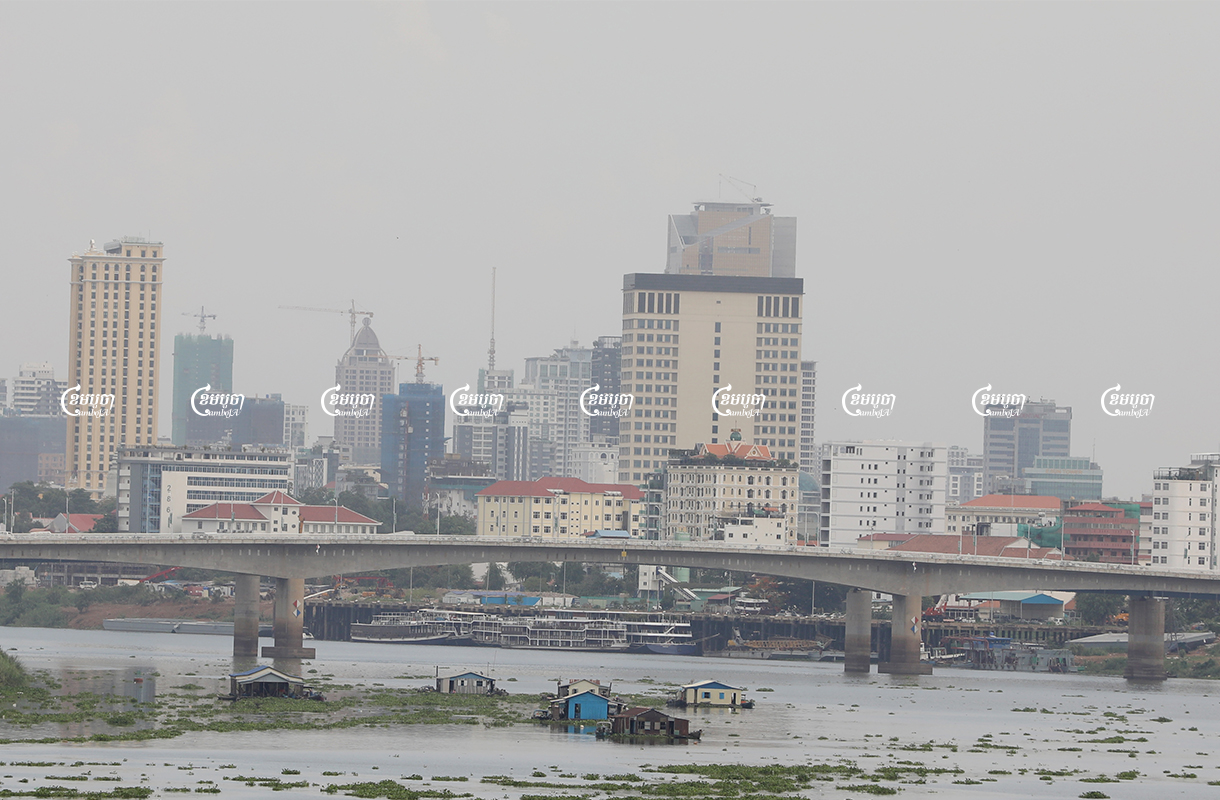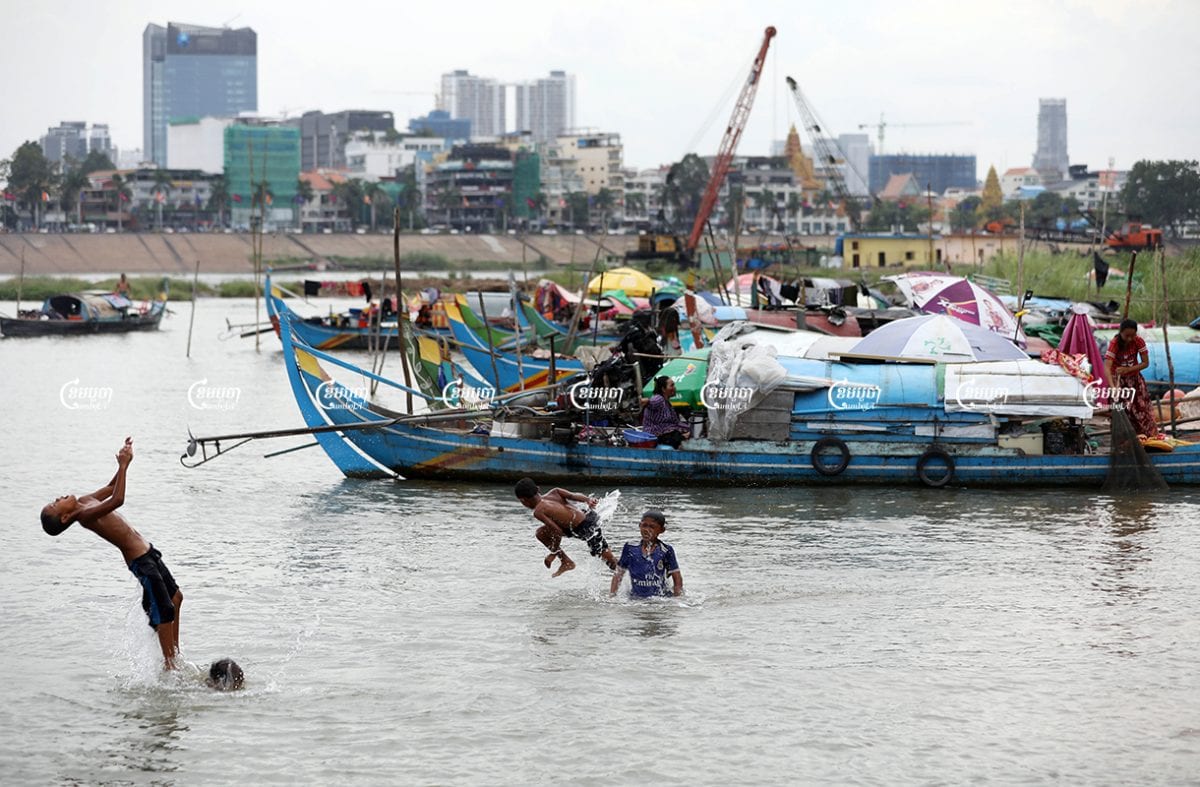Phnom Penh City Hall has ordered people living on floating houses and all constructions along the river in the Capital to be removed, citing environmental concerns.
The announcement dated June 2 claimed squatters in small floating houses and other illegal structures on the river are polluting the water and affecting the ecosystem.
“In order to preserve the biodiversity of the environment, all floating homeowners must immediately evacuate within one week from the date of this notice,” the bulletin stated. “The authorities will not be responsible for any damages and in case of stubbornness the authorities will take the case to court.”
City Hall spokesperson Met Measpheakdey could not be reached for comment.
Chroy Changvar District Governor Klaing Huot said the authority has yet to inform those who are living in floating houses in his district but is now considering a new place on land to relocate the inhabitants.
“I think the city hall will prepare a place onshore for them, but I cannot say in detail because the district authorities are still waiting for instructions from the city hall,” Huot said.
The district governor said the process would be similar to relocations in Kampong Chhnang province, where authorities have relocated thousands of families living on the Tonle Sap river in part to curb water pollution there. In Chroy Changvar, Huot said commune authorities will compile statistics on the number of local people living on the water to find the exact population.
That number includes Nguyen Thiva. The 68-year-old was sitting on the corner of her floating house in the Tonle Sap river in Chroy Changva when she told CamboJA she has been living in her floating house for 30 years. She had not yet received any notice telling her to leave her home.
“I do not know where to go if they order us to leave here,” Thiva said. “I also don’t know if they have another place for us and now, I don’t know how we’ll wait to see the reality of the situation.”
However, Thiva, whose family has eight members, said she will not oppose the authorities.
“We live here depending on fishing, but we gave up about five years ago because there is nothing to catch anymore. Now my children go to work as sand dredging workers,” she said. “I do not want to live on the water, as it is difficult since we cannot fish. We are also afraid when there are storms and heavy rain, especially at night.”
For many years, the Mekong and Tonle Sap rivers in Phnom Penh have been host to hundreds of inhabited fishing boats and floating houses, raising some concerns over water pollution. However, floating homes are far from the only impact on the river system, where parts of the Mekong River in the capital’s Koh Norea area and along the opposite bank in Kandal province’s Arey Ksat village are currently being filled with sand on a massive scale to make way for satellite city projects costing hundreds of millions of dollars in landfilling alone. Environmental experts have said the filling will likely have a harmful impact on the river’s flow and ecosystem.

Out Latin, a project coordinator with the advocacy group Cambodian Youth Network, which works on environmental protection and human rights, welcomed the official measure to remove the floating homes.
“Protecting the river environment is needed, as the entire population of the city relies on the river for daily use and fishing,” he said. “However, authorities also need to educate those living on dry land along the river by not dumping rubbish into the river.”
However, while he supported the environmental aspect, Latin said the authorities must ensure the residents of floating homes are not overlooked after eviction because their removal will make them face more challenges in life.
“To ensure their rights to a living, authorities need to care about them as well and help them for relocation,” he said.
For some in the floating communities, livelihoods have already moved onshore.
So Sokhoeun, another resident of Chroy Changvar, told CamboJA her five-member family has lived in a floating house since 2000. But even though they live on the water, the family does not rely on fishing for its daily living.
Sokhoeun, 50, said her family and others had previously received notice to leave issued from the Overseas Cambodia Investment Corporation (OCIC), which is developing a residential project along the banks where her home usually floats.
“I have lived here for a long time, about 20 years, and we do not know where to go. if they need us to leave, we will ask the authority to find a place on dry land for us,” she said.
Sokhoeun, as with others living in floating houses, does not want to live on the water, pointing to safety concerns caused by the weather.
“It is very dangerous when there is heavy rain and wind, sometimes the ropes break and bring the house away from its place,” she said. “But we have no choice because we do not have another place on land.”








